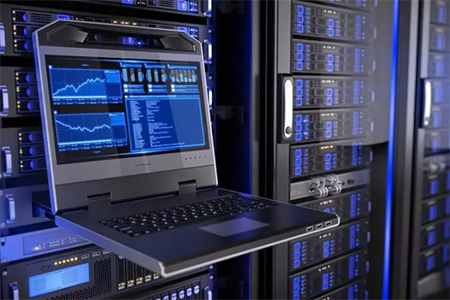Ark Server is a multiplayer online game with the theme of survival and exploration. Due to its open world and complex game mechanics, a powerful server is required to support the operation of the multiplayer game. The following are dedicated server configuration recommendations for Ark servers:
1. CPU (Central Processing Unit):
It is recommended to choose a high-performance multi-core processor. Ark servers have high requirements for CPU performance, so choosing a processor with a high frequency and multiple cores will help improve the smoothness of the game.
It is recommended to choose Intel's Xeon series or AMD's Ryzen series to meet the computing performance requirements of games.
2. Memory (RAM):
The Ark server also has higher memory requirements. At least 16GB or more of memory is recommended to ensure sufficient memory capacity to support multi-player gaming.
Consider using DDR4 memory for better performance.
3. Storage (hard disk/SSD):
Choose a high-speed storage solution, SSD (Solid State Drive) is a good choice. SSD has faster read and write speeds, which helps improve game loading and archiving speeds.
Choose at least 250GB of storage capacity to accommodate game files and server data.
4. Network bandwidth:
Make sure the server has enough network bandwidth to support multiple players connecting at the same time. The massive buildings and ecosystems in the game require high bandwidth to provide a smooth gaming experience.
5. Graphics Processing Unit (GPU):
Although the main burden of an Ark server is on the CPU and memory, some servers may require graphics processing power, especially when running server-side mods.
If the server requires GPU support, you can choose a graphics card with appropriate performance.

6. Operating system:
Most server administrators choose to use a Linux operating system, such as Ubuntu Server or CentOS. These operating systems are generally lighter and more suitable for server use.
Choose a 64-bit operating system to support larger memory.
7. Remote management and monitoring tools:
Equipped with remote management tools so that administrators can easily monitor server status, perform remote maintenance and configuration.
Use monitoring tools to track server performance, resource usage, and network traffic.
8. Firewall and security:
Set up powerful firewall rules to ensure server security. Only necessary ports are allowed to be opened to the outside world.
Regularly update operating systems and server software to fix potential security vulnerabilities.
9. Backup system:
Establish an automatic backup system to regularly back up game data and server configuration. In the event of a failure, backups are key to rapid recovery.
10. Technical support:
Choose a server provider that provides good technical support so that you can get timely help when you encounter problems.
The above are the dedicated server configuration recommendations that are generally applicable to Ark servers. Specific configurations can be adjusted based on actual needs and budget. Make sure your server hardware and network are powerful enough to provide a smooth and stable multiplayer experience.

 EN
EN
 CN
CN








